I had such great intentions to post book reviews here in 2011. Truth is I’m not a great reviewer. So, instead of a steady stream of articulate reviews coming at you twelve months straight, how ’bout some shoddy blurbs crammed in at the end of the year? Good? Glad you’re cool with that.
With by Skye Jethani
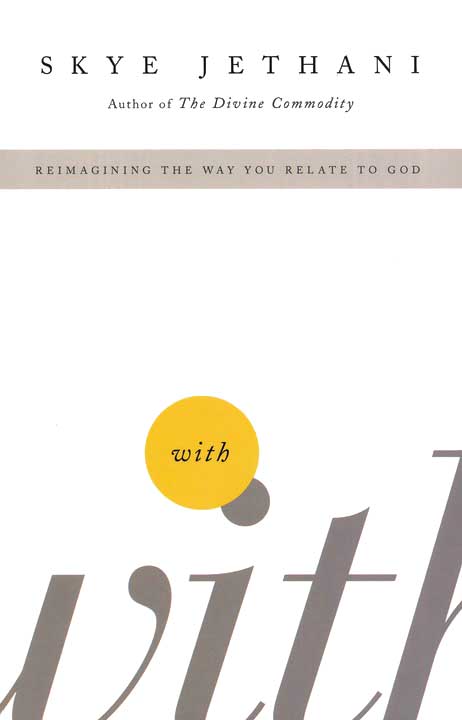 Skye Jethani writes with the efficiency of a journalist/blogger and the heart of a pastor. In the past I’ve highly recommended his first book, Divine Commodity: Discovering A Faith Beyond Consumer Christianity. Unlike most “Christian living” books, I didn’t reach the end feeling as one chapter had been stretched and fluffed into ten. I loved it and looked forward to the release of his second effort, With: Reimagining The Way You Relate To God. Ironically, With is less imaginative and less efficient (there is some perceived stretching in this one) but no less thought-provoking and potentially transformative. With examines four ways of relating to God – life under God, over God, from God and for God – and prescribes an alternative: life with God. Good medicine to cure us of unhealthy extremes – from prosperity theology to empty activism.
Skye Jethani writes with the efficiency of a journalist/blogger and the heart of a pastor. In the past I’ve highly recommended his first book, Divine Commodity: Discovering A Faith Beyond Consumer Christianity. Unlike most “Christian living” books, I didn’t reach the end feeling as one chapter had been stretched and fluffed into ten. I loved it and looked forward to the release of his second effort, With: Reimagining The Way You Relate To God. Ironically, With is less imaginative and less efficient (there is some perceived stretching in this one) but no less thought-provoking and potentially transformative. With examines four ways of relating to God – life under God, over God, from God and for God – and prescribes an alternative: life with God. Good medicine to cure us of unhealthy extremes – from prosperity theology to empty activism.
Fast Living by Scott Todd, PhD
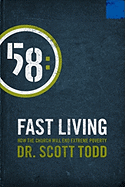 Scott is chairman of the board for North America’s largest network of Christian relief and development organizations and serves Compassion International as their Senior Ministry Advisor. Fast Living: How The Church Will End Extreme Poverty is his attempt to make the case that we will not always have the poor among us. He argues passionately, though not always convincingly, that the collective awareness, activism and generosity of the world’s Christians will end extreme poverty in our lifetime. As well researched and sourced as it is dry at its worst moments, Fast Living is on-the whole inspiring and thought-provoking, nudging me to reevaluate some of my theology and inspiring me with a vision of what that theology may accomplish when rightly lived out.
Scott is chairman of the board for North America’s largest network of Christian relief and development organizations and serves Compassion International as their Senior Ministry Advisor. Fast Living: How The Church Will End Extreme Poverty is his attempt to make the case that we will not always have the poor among us. He argues passionately, though not always convincingly, that the collective awareness, activism and generosity of the world’s Christians will end extreme poverty in our lifetime. As well researched and sourced as it is dry at its worst moments, Fast Living is on-the whole inspiring and thought-provoking, nudging me to reevaluate some of my theology and inspiring me with a vision of what that theology may accomplish when rightly lived out.
Through My Eyes by Tim Tebow with Nathan Whitaker
 Against all genetic predisposition to the contrary, my son Gresham (9) has turned out to be a great athlete. And that scares me a little because, well, because the world of sports – perhaps even more so than the world of music – produces a great deal of self-service and pride (not to mention rape charges). So I went looking for athletes I could confidently hold up as models of faith and excellence in the field of athletics. So I read Tim Tebow’s autobiography Through My Eyes. It’s a terribly crafted book, written at a third grade reading level and perhaps originally in crayon. It’s the worst book I’ve ever read by far. Terrible. And even worse is the impression the book gives of Tim Tebow, casting him as prideful (bragging about, not just reporting on, his superior strength and athleticism on every page) and thin spiritually (offering cliche condescending bumper sticker answers to some of life’s greatest struggles). And this is unfortunate because since reading Through My Eyes I’ve sought out other sources which have introduced me to a much more humble profound selfless and inspiring Tim Tebow – what I believe to be the real Tim Tebow.
Against all genetic predisposition to the contrary, my son Gresham (9) has turned out to be a great athlete. And that scares me a little because, well, because the world of sports – perhaps even more so than the world of music – produces a great deal of self-service and pride (not to mention rape charges). So I went looking for athletes I could confidently hold up as models of faith and excellence in the field of athletics. So I read Tim Tebow’s autobiography Through My Eyes. It’s a terribly crafted book, written at a third grade reading level and perhaps originally in crayon. It’s the worst book I’ve ever read by far. Terrible. And even worse is the impression the book gives of Tim Tebow, casting him as prideful (bragging about, not just reporting on, his superior strength and athleticism on every page) and thin spiritually (offering cliche condescending bumper sticker answers to some of life’s greatest struggles). And this is unfortunate because since reading Through My Eyes I’ve sought out other sources which have introduced me to a much more humble profound selfless and inspiring Tim Tebow – what I believe to be the real Tim Tebow.
Quiet Strength by Tony Dungy with Nathan Whitaker
 Again, I read this book in search of a role model with smarts, faith and athleticism – and this time I found it. Tony Dungy won a Super Bowl with the Steelers (my son’s favorite team) in 1978, coached by the legendary Chuck Noll (are you impressed/surprised yet by my football knowledge?), then coached the Buccaneers to the playoffs and the Colts to the Super Bowl. Through the stories of injury, job loss, the death of a child, and much success, Dungy credits his God, family and friends with not only getting him through but making him better. Quiet Strength: The Principles, Practices, and Priorities of a Winning Life is packed with great quotes and short life lessons I was able to relay to my son, using football to grow his understanding of life, relationships and God. It’s not Pulitzer writing for sure. The style is conversational, simple – but not distractingly so.
Again, I read this book in search of a role model with smarts, faith and athleticism – and this time I found it. Tony Dungy won a Super Bowl with the Steelers (my son’s favorite team) in 1978, coached by the legendary Chuck Noll (are you impressed/surprised yet by my football knowledge?), then coached the Buccaneers to the playoffs and the Colts to the Super Bowl. Through the stories of injury, job loss, the death of a child, and much success, Dungy credits his God, family and friends with not only getting him through but making him better. Quiet Strength: The Principles, Practices, and Priorities of a Winning Life is packed with great quotes and short life lessons I was able to relay to my son, using football to grow his understanding of life, relationships and God. It’s not Pulitzer writing for sure. The style is conversational, simple – but not distractingly so.
One Thousand Gifts by Ann Voskamp
One Thousand Gifts by Ann Voskamp
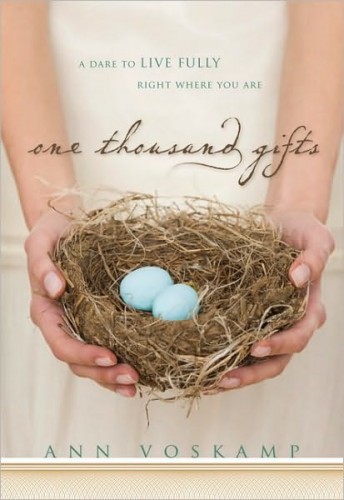 It goes without saying by now doesn’t it? I love this book. I’m biased, I know, because I’ve had the gift of getting to know Ann and love her and her family. And don’t worry, men. Beneath that cover is a manly brown. So throw the cover in the trash if it’ll draw taunts from your friends, but don’t dodge this one just because your wife read it first. Man up and read the best book of 2011 – One Thousand Gifts is a beautifully crafted collection of powerful story and transformative theology, it’s poetry, a treatise on the discipline of gratitude, a tribute to the Giver of all things. ANd if you haven’t before, you must check out Ann’s blog – aholyexperience.com – every post is of the same quality as her book. Remarkable.
It goes without saying by now doesn’t it? I love this book. I’m biased, I know, because I’ve had the gift of getting to know Ann and love her and her family. And don’t worry, men. Beneath that cover is a manly brown. So throw the cover in the trash if it’ll draw taunts from your friends, but don’t dodge this one just because your wife read it first. Man up and read the best book of 2011 – One Thousand Gifts is a beautifully crafted collection of powerful story and transformative theology, it’s poetry, a treatise on the discipline of gratitude, a tribute to the Giver of all things. ANd if you haven’t before, you must check out Ann’s blog – aholyexperience.com – every post is of the same quality as her book. Remarkable.
The Kingdom New Testament by N.T. Wright
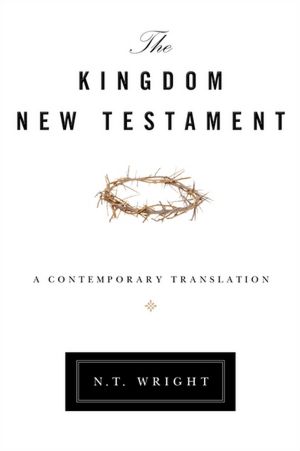 N.T. Wright has created this new translation of the New Testament. And it is a translation, not a paraphrase, aimed at forming the original Greek into modern day English without being condescending or inaccurate. it’s not a perfect translation. I haven’t found one of those yet. But The Kingdom New Testament does manage to capture the meaning of some passages more accurately than others – especially within the letters of Paul. To my ears the writings of Paul often seem detached from the words of Jesus. At the center of Jesus’ message is his kingship and the arrival of his kingdom on earth. But so many translations of Paul’s letters use language that inadvertently obscures such ideas in his theology. So, where other translators have used “Christ”, Wright has sometimes chosen to use “King” or “Messiah”. Elsewhere he swaps “dominion” and “domain” out for “empire” and “kingdom”. Just a couple examples of how Wright’s translation – though imperfect – makes strides in connecting the message of Paul and Jesus without misrepresenting either one.
N.T. Wright has created this new translation of the New Testament. And it is a translation, not a paraphrase, aimed at forming the original Greek into modern day English without being condescending or inaccurate. it’s not a perfect translation. I haven’t found one of those yet. But The Kingdom New Testament does manage to capture the meaning of some passages more accurately than others – especially within the letters of Paul. To my ears the writings of Paul often seem detached from the words of Jesus. At the center of Jesus’ message is his kingship and the arrival of his kingdom on earth. But so many translations of Paul’s letters use language that inadvertently obscures such ideas in his theology. So, where other translators have used “Christ”, Wright has sometimes chosen to use “King” or “Messiah”. Elsewhere he swaps “dominion” and “domain” out for “empire” and “kingdom”. Just a couple examples of how Wright’s translation – though imperfect – makes strides in connecting the message of Paul and Jesus without misrepresenting either one.
Hebrew Greek Key Word Study Bible by AMG Publishers
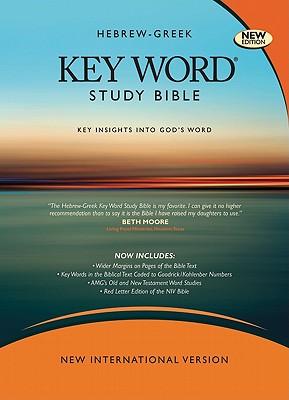 My bible has been coverless for a few years. I could live with that. But then I lost all of Genesis and half of Exodus. Suddenly, the Hebrews were in the wilderness and I had no idea how they got there. So I bought the Hebrew Greek Key Word Study Bible by AMG. Available in hardcover or leather bound, both editions come with loads of lexical aids built in. For instance, in Exodus 14 this morning I read about how God parted the Red Sea and the Hebrews walked across the “dry ground” of the sea floor. Above the words “dry ground” was a reference number. I flipped to the Hebrew Lexicon in the back, found the number and learned that “dry ground” is the translation of a Hebrew word that can also be rendered as “desert.” God didn’t just part the waters; He turned ocean into desert. Daily bible reading takes on new depth with so many easy to use resources a page flip away.
My bible has been coverless for a few years. I could live with that. But then I lost all of Genesis and half of Exodus. Suddenly, the Hebrews were in the wilderness and I had no idea how they got there. So I bought the Hebrew Greek Key Word Study Bible by AMG. Available in hardcover or leather bound, both editions come with loads of lexical aids built in. For instance, in Exodus 14 this morning I read about how God parted the Red Sea and the Hebrews walked across the “dry ground” of the sea floor. Above the words “dry ground” was a reference number. I flipped to the Hebrew Lexicon in the back, found the number and learned that “dry ground” is the translation of a Hebrew word that can also be rendered as “desert.” God didn’t just part the waters; He turned ocean into desert. Daily bible reading takes on new depth with so many easy to use resources a page flip away.
Alone Together by Sherry Turkle
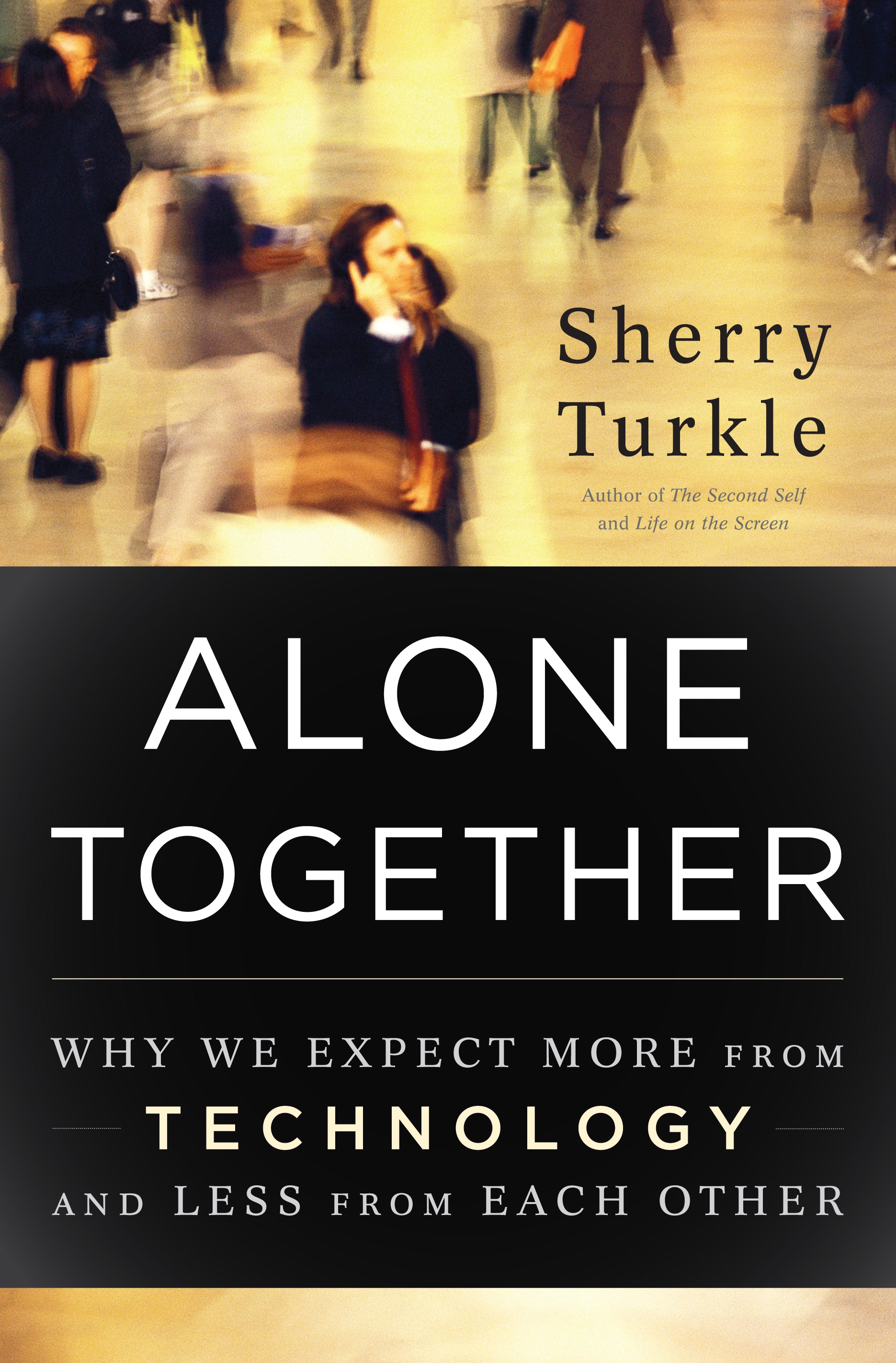 Turkle is a psychologist employed by MIT who, every few years, writes a book about the effects of the latest technologies on human beings. Her books have been overwhelming positive about the contributions technology has made to our lives, optimistic about the the future collaboration between people and tech. But not Alone Together. She admits that her optimistic forecasts were sometimes misguided – she was wrong. Technology is harming us, disconnecting us from one another as we lean on it more and more to aid us in making connections. We are socially retarded, mentally unhealthy, and our future isn’t brighter. Read this book before launching your hate blog, buying your child a virtual friend, joining Facebook or buying your teen that cell phone because, gosh, all their friends have one. Yikes.
Turkle is a psychologist employed by MIT who, every few years, writes a book about the effects of the latest technologies on human beings. Her books have been overwhelming positive about the contributions technology has made to our lives, optimistic about the the future collaboration between people and tech. But not Alone Together. She admits that her optimistic forecasts were sometimes misguided – she was wrong. Technology is harming us, disconnecting us from one another as we lean on it more and more to aid us in making connections. We are socially retarded, mentally unhealthy, and our future isn’t brighter. Read this book before launching your hate blog, buying your child a virtual friend, joining Facebook or buying your teen that cell phone because, gosh, all their friends have one. Yikes.
 Shaun Groves
Shaun Groves
Jessica says:
Eep! I’ve wanted to read 1000 Gifts since … it came out. But I couldn’t swallow the price because of how we’re all poor and stuff.
BUT I totally caught it on supah sale last week and it came this week and I’m SO excited to finally blow through a box of tissues reading it.
We are THAT family says:
Great list! But I think you forgot one 😉
Shaun Groves says:
Doh! Honestly, I still haven’t read it! That’s terrible. I know. I’ll get right on that, Kristen…in 2012 ; )
Beth says:
I love my Hebrew-Greek KeyWord Study Bible. I have the NASB (Updated) version. If I could somehow couple this with the ESV Study Bible, I’m sure I’d get as close to a perfect study Bible; next to conversing with the original inspired writers themselves.
Beth
Kris says:
Thanks, Shaun!
Zoë says:
I laughed out loud at the idea of the Hebrews in the wilderness and you’d no idea how they got there!
One Thousand Gifts has changed me. I found the book a little hard to read. I think it was the difference between colloquial American English and British English (I may be wrong) but listening to Ann read her book as an audiobook was a wonderful experience.
Thanks Shaun, for the reviews and for your blog. If it wasn’t for you I’d never have read Ann Voskamp’s book!
Ali says:
If you’re interested in more books about sports figures that are good role models of faith and sportsmanship, I highly recommend “Coming Back Stronger” by Drew Brees with Chris Fabry.
Melissa Jones says:
He’s not a recent sports figure, but Eric Liddel has always been a favorite of mine. The things he did in concentration camps in China were just as amazing as those chronicled in “Chariots of Fire.”
NancyTyler says:
I really liked Turkle’s interview on “On Being.” Haven’t gotten to the book on my reading list yet but can’t wait! I think if I ever went back to school, I’d study sociology.
Stephanie says:
“One Thousand Gifts” is on my counter right now. I plan to read it this week! 🙂
CariK says:
Great list! I found sme new books to read in 2012! Between you and DUane my Amazon wishlist is filling up!
I just finished Mark Powley’s Consumer Detox and it was awesome! The writing’s a bit choppy and you have to overcome his non-American vernacular in places, but an awesome message!
You’ve encouraged me to do a 2011 book review list…I’ll post back with the link!
Jessica says:
Great reviews. Love the honesty. That’s about how I end up reviewing a book, too. I dream or writing long paragraphs of elegantly written synopsis. But, I’m with you. Like your style! You’ve got a few on your list that I haven’t read yet. So, I’m adding them to my 2012 list.
MK @ Teach Sunday School says:
Hey—better late than never! And I have to say that your book reviews were well worth the wait. I hadn’t even heard of some of these books, and I hope that I’ll have time to read all of them over the coming months. You gave a really good variety of types of books, and I loved reading your thoughts on each of them. Thank you so much for sharing!